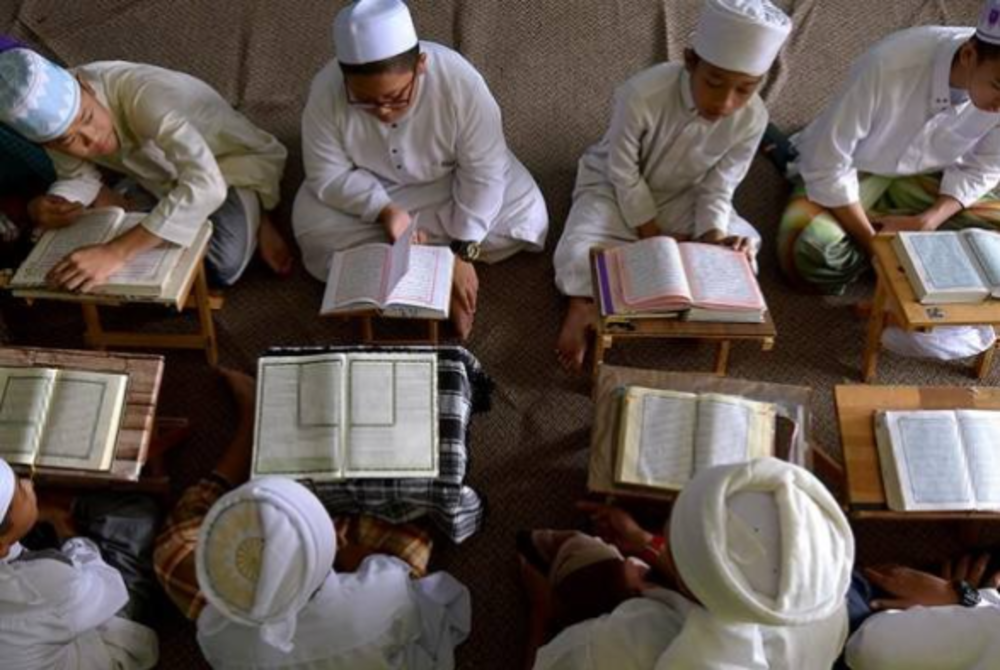Choose Islamic study place wisely - Dr Mashitah
NURULFATIHA MUAH
Shocking. That is among netizens' reactions towards the news of numerous Malaysians said to be involved in a controversial ceremony taking place at a strange pesantren (Islamic boarding school) in Indramayu, West Java, Indonesia.
Ironically, this is not the first time that the school had been liked to sensational issues.
It includes saying greetings in Jewish and Christian ways in Hebrew, mixing saf (prayer rows) between men and women and allowing women to deliver sermons.
The controversy opened the public's eyes so that they will not go around choosing a place to study blindly, especially religious institutions and schools.
What are the characteristics of pondok (Islamic boarding school) or religious studies that truly practise the teachings brought by the Prophet Muhammad Peace Be Upon Him (PBUH)?
Sinar Islam Plus interviewed Malaysian Pondok Development Foundation (YPPM) executive chairman Datuk Dr Mashitah Ibrahim to explore further the criteria of Islamic schools that are truly reliable.
She explained that the school must have teachers who are well-versed in religious studies with valid sanad (knowledge lineage).
"Study at pondok is normally not limited to a certain age besides not exam-oriented, but is rather coordinated towards the form of knowledge.
"Only recently, there are also certain pondok that offer exams such as Malaysian Education Certificate (SPM), Malaysian Higher Religious Certificate (STAM) and so on which add value to existing students. At least, they can continue with other studies after that," she said recently.
There are still many people who are confused between pondok and religious schools or maahad tahfiz.
Commenting further, Dr Mashitah explained that pondok institution basically offers the study of old books or known as yellow books and turath which entirely use Arabic.
"Books like that are called 'hanging meaning' as when we read them, we would hang the meaning underneath.
"Usually, every pondok has their own specialisation. For example, in the field of Arabic language, jurisprudence, belief, sufism and others.
"The concept of pondok is also not the same as it is more directed towards the process of self-improvement. In fact, the instructor does not only become a teacher to gain knowledge, but the students are also taught to pray together with them among other things," she said while stressing that the syllabus for the students is completely different from that at tahfiz centres or public religious schools.
To make it easier for the public to make references related to pondok, Dr Mashitah who is also former Deputy Minister in the Prime Minister's Department explained that YPPM published a book containing a directory of pondok throughout Malaysia titled Malaysian Pondok Profile.
The piece of writing produced by YPPM's research with Universiti Utara Malaysia and collaboration with the Malaysian Digital Economy Corporation (MDEC) can be found in public and university libraries, she said.
She explained that there are more than 240 pondok schools registered under the State Islamic Religious Council (Main) besides another 400 that have been identified by her team so far.
"We not only give an overview of the pondok, but we went on the ground, took pictures and relevant information detailed in the profile," she said.
Not only that, she explained that YPPM is also in the framework of preparing profiles of mudir (principal) in Malaysia which is expected to be completed by the end of this year.
The reporter managed to ask for her perspective on the public's expectation that people who study at pondok have an abundance of religious knowledge.
Unfortunately, it can be the other way around if the pondok, pesantren or study centre teaches doctrines that deviate from the Islamic sharia.
"I see it like a drop of colour that can spoil a whole pot of milk. Most aren't like that. On the contrary, only very few are especially here. In fact, we have a commendable quality of pondok institutes in the country.
"One more thing, it cannot be denied that since ages ago, the Prophet Muhammad PBUH had reprimanded extremists and destructors of religion as mentioned in many hadiths.
"There is indeed a reason that this religious thought is sometimes brought based on the interpretation of a teacher himself. That's why we always have consensus among scholars to approach these pondok schools and not desert them.
"Let's not forget there are few people who don't like pondok schools. You know, pondok institutions in history recorded that they were also involved in efforts to bring Malaysia's independence," she said in response.
Dr Mashitah also reminded every Muslim to be wise in filtering out matters related to religion and to remember the teachings of the scholars.
"When talking about religion, pay attention to the source, where we get the relevant knowledge from, who our teachers are and where they are from.
"All those things need to be observed, questioned and researched beforehand so that what is obtained comes from the right masdar (source).
"When the source is trustworthy, the knowledge obtained is also valid. Remember, religious knowledge is clear and radiant. If it is already clear that something involves mixing men and women in a row of prayer for example, something is clearly wrong," she stressed.
Download Sinar Daily application.Click Here!














